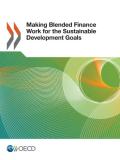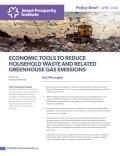An Analysis of Physical and Monetary Losses of Environmental Health and Natural Resources in India provides estimates of social and financial costs of environmental damage in India from three pollution damage categories: (i) urban air pollution; (ii) inadequate water supply, poor sanitation, and hygiene; and (iii) indoor air pollution. It also provides estimates based on three natural resource damage categories: (i) agricultural damage from soil salinity, water logging, and soil erosion; (ii) rangeland degradation; and (iii) deforestation.
One of the key environmental problems facing India is that of particle pollution from the combustion of fossil fuels. This has serious health consequences and with the rapid growth in the economy these impacts are increasing. At the same time, economic growth is an imperative and policymakers are concerned about the possibility that pollution reduction measures could reduce growth significantly.
India's Economic Growth and Environmental Sustainability: What are the tradeoffs? addresses the tradeoffs involved in controlling local pollutants such as particles. Using an established Computable General Equilibrium model, it evaluates the impacts of a tax on coal or on emissions of particles such that these instruments result in emission levels that are respectively 10 percent and 30 percent lower than they otherwise would be in 2030.


Spurred by innovation, increased competition, and policy support in a growing number of countries, renewable energy technologies have achieved massive technological advances and sharp cost reductions. Renewables have come to the forefront of the global energy transition, with nearly every country adopting a renewable energy target. Yet progress has been uneven in different countries and sectors. Technology and financial risks still hamper the expansion of renewables into new markets. As the power sector develops further, the increased adoption of variable renewables like solar and wind requires more flexible systems. Compared to power generation, the regulatory framework for end-use sectors lags behind.
